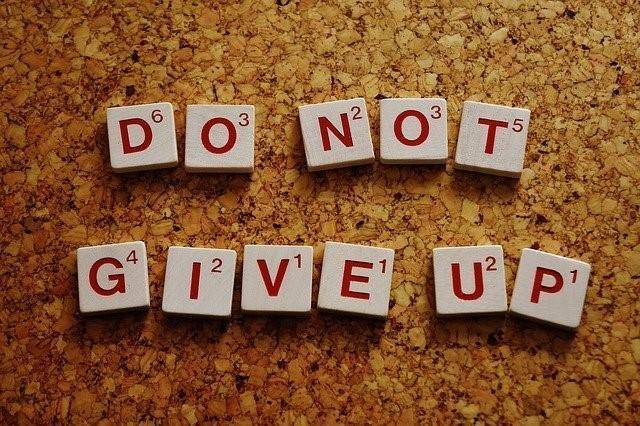A lack of motivation is something I have always struggled with.
Have you ever started a task determined to accomplish it but then ended up leaving it permanently half-done?
Ever been excited to start a task but stopped when you discovered it was more difficult than you expected?
How many tasks have you avoided because you don’t want to do them?
What causes this lack of motivation?
The short answer is something in your life is draining all of your energy.
The source could be a difficult boss, a constant feeling of overwhelm, or you think this is as good as it gets.
This post lists possible reasons for your lack of motivation, how to fix a lack of motivation, and tips on how you can motivate yourself every day.
Welcome to Part 3 of the Bad Habit Series let’s dive in!
More Articles You May Be Interested In:
How To Break A Bad Habit (Part 1 Bad Habit Series)
How To Get Motivated (Part 2 Bad Habit Series)
The Ultimate Guide To Budgeting
Common Causes of Lack of Motivation
The following are the most common causes for a lack of motivation. I included some easy solutions for overcoming them.
You’re Feeling Overwhelmed
If you have too many tasks on your plate you may not know where to start. Not defining where to begin with your task list will ensure it will never get done.
Solution: write out everything that needs to be done in a list. Then complete the easiest tasks first to give yourself a sense of accomplishment. Take it one step at a time.
Working Toward Someone Else’s Goals
How much do you love your job right now? Are you struggling to stay on task?
Working toward a goal set by your boss can cause you to lose motivation.
In my experience, it will also take twice as long to complete the task because you will make excuses to avoid working on it.
Solution: stop looking at the goal as being someone else’s dream. Try to find an angle of the goal that could be benefiting you.
Are you gaining more experience toward one of your goals?

Your Mindset Is Fixed
A “fixed mindset” is thinking you don’t have any control over your intelligence or skills.
You are basically born with the knowledge and skills you are capable of developing.
Solution: flip the script; start telling yourself you can learn new skills.
Start reading books or do more google searches to learn something new.
If you’ve made it this far you are already doing that. Be proud of yourself!
You Have Settled for Less Than What you are Capable Of
When was the last time you set a new goal for yourself?
Settling for less means, you have settled into the place in life you are currently in.
You have accepted this to be as good as it gets.
Solution: answer this question for yourself.
If you could redesign your entire life, what would you be doing right now?
Then make a list of what you could start doing to make that outcome a reality.
Not Having a Schedule
Sounds weird, I know. Most of us are used to having a schedule to get our “to do list” out of the way at work.
However, when was the last time you set a schedule to work on a hobby?
Or set a schedule to include the new habit you are trying to get motivated to do?
Maybe you have a lot of spare time on the weekends.
Create a schedule to make sure the less fun tasks (budgeting, cleaning, laundry, etc.) are complete before binging Netflix for hours on end.
Solution: Try creating a schedule of specific times to complete the few tasks you have or maybe create a goal to complete that day.
This does not mean you need to have a rigorous schedule. It’s just a few reserved times to focus on a specific task.
How do you fix lack of motivation?
There are additional ways for you to fight off your lack of motivation; besides the mini solutions, I gave you above.
First, let’s look at a couple of definitions to help get you through this section.
There are two different types of motivation.
One is intrinsic motivation which is behavior driven by internal rewards.
Example of intrinsic motivation: you order pizza for dinner to satisfy a craving. This is something you find instinctual or naturally satisfying
The other is extrinsic motivation, behavior driven by external rewards. .
Example of extrinsic motivation: Money, fame, good grades, praise for a job well done, etc. These are items that are not natural.
I want you to focus on intrinsic motivation in the beginning.
It’s easier for you to sustain since the reward system is something that comes naturally within you.
You never want to start with extrinsic motivation when you aren’t used to setting clear goals with clear defined outcomes.
Your natural reward system will help you fine-tune that ability.
To set your first goal toward fixing a lack of motivation, answer these questions first:
- Why is this the right goal for you?
- Why do you need to achieve this goal?
- Example: I need to achieve this goal so the bank doesn’t foreclose on my house.
- Why is this goal important for you (and your family)?
Next follow these tips:
Write your goal down.
This is setting it in stone so to speak. It also makes the goal tangible for you. You want the goal to be extremely specific.
Describe the emotional experiences you expect to feel during and after this journey.
Are there smaller goals you can achieve to help you accomplish your main goal?
Post the written goal where you will see it every day.
Your mind is so busy from day-to-day it cannot remember every single detail of every single thing you do.
That is how crucial this step is to you.
Know where your roadblocks are.
List out any possible problems you could come across while working toward your goal.
Then create a list of solutions for those problems.
If you come across a problem, ask yourself these questions:
What can I control?
Which ones can I influence?
What is completely out of my control?
The last question is crucial because it helps you identify which roadblocks you should not waste your time worrying about.
If you can’t control it or change it then find a quick workaround and keep moving forward.
When you can influence or control the problem odds a misstep was made somewhere.
Identify the misstep so you can avoid it in the future.
The main point of this section is to keep you moving forward.
Get rid of mental distractions.
Focus on the main priorities of reaching your goal.
If it seems like you’re running around in circles when trying to achieve a mini-goal just drop the goal.
It’s distracting you.
Then move on to the next mini goal.

Positive self-talk
This is something you can actually practice. When your inner voice starts talking negatively reverse the comments to sound positive.
Easier said than done I know. Our inner critic is strong. In the beginning, try to verbalize the positive version of the comment to get you to focus on it.
Example: I will never get my credit card paid off. Reverse to sound positive, I will pay off my credit card.
The positive verbalization will help encourage you to make better choices to make it come true.
Rewards, Rewards, Rewards.
When a journey toward a goal is extremely long small rewards along the way help keep you moving forward.
It satisfies the instant gratification emotion.
An example: I have student loans that will take another 4 years to pay off if I make an additional $300 payment each month.
For every $1,000 I pay off, I will purchase a new season of Big Bang Theory or an expensive book I have held off from getting.
I love to read and I do not like finale cliffhangers. Both of these rewards are strong enough to keep me on track to pay off my student loans.
More Articles You May Be Interested In:
How To Break A Bad Habit (Part 1 Bad Habit Series)
How To Get Motivated (Part 2 Bad Habit Series)
The Ultimate Guide To Budgeting
How can I motivate myself every day?
I firmly believe that without daily motivation you will not achieve any of your goals. It doesn’t matter how easy or hard they are to accomplish.
Here is a list of easy solutions to give yourself a little pick me up:
- Create a schedule for your free time. When you know, what to do and when your brain will stay focused.
- Mix easy short tasks with difficult longer tasks. You’ll stay more focused on the difficult task.
- Analyze your emotions toward burnout.
- When you start to feel burnout, try to focus on another aspect of your goal, like a mini goal.
- Review your progress at the end of every week.
- Reviewing will shift your focus to what you have already accomplished instead of what you have left to complete.
- Try the Pomodoro method and some relaxation sounds while working.
- Set an interval timer to 25 minutes of work and a 5-minute break. You can also try 50 minutes of work with a 10-minute break.
- Be careful with what you eat and drink.
- This may seem weird but too much caffeine, fast food, or sugar during a long work period can cause you to crash early.
Your take action guide
Here is where I want you to start:
- Define the biggest cause for your lack of motivation.
- Answer the why questions and follow the tips list in the “how to fix your lack of motivation” section.
- Choose one way to start motivating yourself every day.
The list of ways to motivate you every day is extremely crucial. Once you master the technique you chose for motivating yourself every day.
Try adding another one. I would like you to be able to do all five daily motivation techniques on a regular basis.
This will keep your technique from going stale. Always remember, give yourself as much positive self-talk as you can.
Verbalizing positive self-talk every morning will really set the tone to accomplish your day. Try it!
More Articles You May Be Interested In:
How To Break A Bad Habit (Part 1 Bad Habit Series)
How To Get Motivated (Part 2 Bad Habit Series)
The Ultimate Guide To Budgeting
References:
https://www.verywellmind.com/what-is-intrinsic-motivation-2795385
https://www.verywellmind.com/what-is-extrinsic-motivation-2795164#what-is-extrinsic-motivation
https://www.healthline.com/health/mental-health/motivation-work-tasks
https://www.inc.com/chris-dessi/10-simple-ways-to-motivate-yourself-every-day.html
Subscribe and you'll receive our weekly posts right in your inbox. You'll also be one of the first to be notified when our free budget course opens. Hope to see you there!





